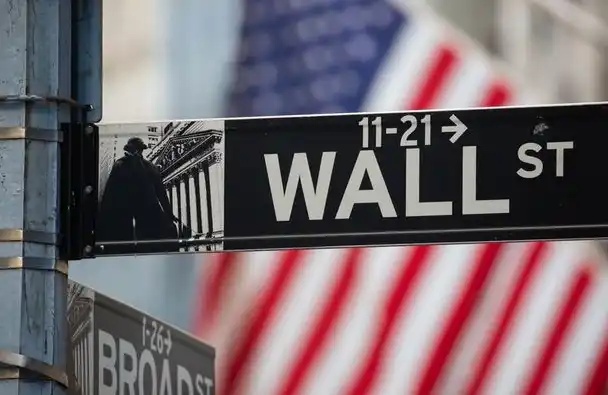You can now buy NVIDIA on Kraken! What are the differences compared to trading stocks on a traditional brokerage?
In recent years, an increasing number of institutions and regulatory bodies in the traditional financial sector have begun to accept cryptocurrency, and more and more projects in the crypto space are intending to comply in exchange for greater exposure. The road to Build is long, but the explosion is instantaneous, with several trend indicators such as the inauguration of the Trump administration, a shift in the SEC's stance, the recent stablecoin legislation passage, and the inclusion of the cryptocurrency exchange Coinbase in the S&P 500 index.
This has led many previously cautious crypto projects and brokerage firms to boldly engage in security tokenization business, and a proliferation of on-chain "Nasdaqs" has emerged.

Where Else Can You Buy "On-Chain Stocks"?
Not only are "crypto" concept stocks popular with investors in the US stock market, but in the crypto world, the tokenization of US stocks and securities has also recently sparked a frenzy.

Comparison of security tokenization concept projects in the crypto space, Chart: BlockBeats
XStocks
Kraken is a veteran cryptocurrency exchange founded in 2011, and on May 22, Kraken announced a partnership with Backed Finance to launch a tokenized stock and ETF trading service called "xStocks," covering over 50 US-listed stocks and ETFs including Apple, Tesla, Nvidia, and more.
This project will be exclusively issued on the Solana blockchain, which has received strong support from the Solana team. Several members from Kraken and Backed also appeared at yesterday's Solana Accelerate 2025 event to share their views on the future of security tokenization.
Bybit
Bybit, established in 2018, does not issue tokens in the stock tokenization field but serves as a trading channel supporting trading of tokenized assets. It partners with retail platforms like Swarm to provide a market for trading stock or ETF tokens. Bybit offers stock trading tools based on Contract for Difference (CFD), allowing users to participate in stock price fluctuations without owning the underlying stock. A unique feature is the ability to leverage up to 5 times.
Bybit also supports RWA token trading through copy trading and an NFT marketplace, targeting users interested in investing in tokenized assets. It has now opened trading for 78 selected stocks including Apple, Tesla, Nvidia, with a fee of 0.04 USDT per share and a minimum order fee of 5 USDT per transaction.
Ondo
Ondo Finance is one of the most comprehensive projects in the encrypted field of "security tokenization," and it is building a comprehensive RWA (Tokenized Asset System) covering asset issuance, liquidity management, and underlying infrastructure. Its core products include two types of asset-backed tokens, OUSG and USDY, as well as the Nexus liquidity protocol, the Flux lending platform, and the upcoming compliant permissioned blockchain, Ondo Chain.
In February 2025, Ondo held its inaugural Summit in New York, officially unveiling its GM (Global Markets) platform design, aimed at tokenizing thousands of global public securities (such as Apple, Tesla, S&P 500 ETF) and enabling 24/7 on-chain trading and instant settlement. All tokens on the GM platform are backed by 1:1 real-world securities, but the issuance and redemption processes incorporate built-in compliance permission controls, targeting markets outside the United States, striving to create "Wall Street 2.0."

To support its "grand strategy," Ondo also announced the launch of the institution-facing compliant Ondo Chain. The chain adopts a semi-permissioned architecture, allowing anyone to issue and develop, but validation nodes are operated by renowned financial institutions to ensure compliance and security. The chain natively supports financial operations such as dividend distribution, stock splits, and introduces an on-chain proof of reserves mechanism to ensure tokens are fully backed by assets, aiming to become the infrastructure for future on-chain prime brokerage, cross-asset collateral, and other core traditional financial operations. On May 19, Kinexys, a subsidiary of JPMorgan Chase, executed the first cross-chain "Delivery vs Payment" transaction with Ondo Chain.
Although GM and Ondo Chain have not yet officially launched, the core assets of the Ondo ecosystem, OUSG and USDY, have reached scales of $545 million and $634 million, respectively. OUSG is mainly held by institutions on Ethereum, while USDY demonstrates higher retail user adoption on Solana.
Notably, most members of the Ondo team come from top institutions such as Goldman Sachs and McKinsey and actively engage in communication and coordination with U.S. regulatory agencies such as the SEC and CFTC, deeply involved in policy-making, compliance design, and public relations, including inviting former Congressman Patrick McHenry to join the advisory board, fully demonstrating its ambition and resource integration capability in bridging the gap between traditional finance and the crypto industry.
Securitize
Within the gradually compliant crypto industry, there are also companies with strong ties to governments and brokerages, such as Cantor, responsible for Tether's 99% US Treasury bond purchases. Cantor, one of the US Treasury's 24 primary dealers, is directly involved in Treasury bond issuance and trading, maintaining close business relations with the Federal Reserve and the Treasury. The collaboration between the two parties allowed Tether to generate $2 billion in revenue from Treasury bonds in the middle of 2023.
Entities similar to Cantor and Tether are not uncommon. BlackRock, the world's largest asset management company, established the BUIDL fund in 2024, which has surpassed $25 billion in assets under management this year, becoming a leader in the RWA track. The designated custodian for BUIDL is Securitize, founded in 2017, focusing on blockchain technology and digital asset securitization.
However, unlike traditional crypto companies, Securitize's management team is filled with Wall Street executives. In 2021, Securitize hired former SEC Division of Trading and Markets Director Brett Redfearn, who currently serves as the Chief Strategic Advisor and Chairman of the Advisory Board. Securitize also has a close relationship with the newly appointed SEC Chairman, Paul Atkins. Paul Atkins joined Securitize as early as 2019, serving as a committee member and board director on the Advisory Board and holding up to $500,000 in call options, only stepping down in February of this year. Coincidentally, also in 2019, Securitize became an SEC-registered broker-dealer and SEC-regulated Alternative Trading System (ATS) operator.
On the eve of this "compliance" era, Securitize may leverage its compliance "background" to become one of the best bridges between crypto and traditional finance.
Feeding in the Tiger's Mouth?
The signs of brokerages participating in crypto began even earlier, with multiple brokerages attempting to integrate crypto business years ago.

Comparison of data before and after major securities firms joined the "crypto concept," Chart: BlockBeats
Toro is an Israeli fintech company founded in 2007, which first launched its Bitcoin trading service in 2013. Since then, eToro has been expanding its digital asset product line, gradually adding support for trading mainstream cryptocurrencies such as Ethereum, Ripple (XRP), Litecoin, and more.
On the other hand, Robinhood may be the most well-known brokerage company in the Crypto community. As early as 2018, it entered the crypto space and gained widespread recognition during the Trump Coin era. After the company announced the acquisition of the European digital asset exchange platform Bitstamp for $200 million, in March of this year, Robinhood made its way into Singapore. Leveraging Bitstamp to obtain regulatory approval and integrate into Singapore's crypto-friendly framework, Bitstamp has received in-principle approval from the Monetary Authority of Singapore (MAS), providing Robinhood with significant regulatory advantages and simplifying its market entry process.
By prioritizing regulatory compliance, Robinhood sets itself apart from offshore platforms operating in legal gray areas, which is also one of the advantages that traditional brokerages have over some Crypto CEXs in advancing global tokenized securities.
Robinhood's expansion in Singapore is part of its broader international growth strategy. Robinhood has previously launched crypto trading in Europe and initiated stock options trading in the UK. With the expansion of its licensing scope, Robinhood is poised to offer comprehensive services, including digital and traditional finance, in multiple regions.
Moreover, this month Robinhood has accelerated its own securities market tokenization process. On May 8, Robinhood announced plans to launch a blockchain-based platform for trading U.S. assets in Europe. On May 20, Robinhood submitted a 42-page proposal to the U.S. Securities and Exchange Commission (SEC), proposing to establish a federal-level "RWA Tokenization" framework aimed at modernizing the U.S. securities market.
Not limited to Europe and the U.S., some Hong Kong brokerages also began exploring related areas last year. In June 2024, multiple Hong Kong brokerages started to provide trading services for virtual assets such as Bitcoin. Brokerages in Hong Kong, including Futu Securities, Tiger Brokers, and VCM Securities, have all launched corresponding services. Some brokerages are placing greater emphasis on their crypto business, expecting revenue from their crypto-related business to account for around a quarter of the company's total revenue.
On May 7, 2025, Futu Securities also announced the official launch of Bitcoin, Ethereum, and USDT deposit services. Users can complete deposits and trade cryptocurrencies and traditional financial assets through Futu Bull, including Hong Kong, U.S., and Japanese stocks, options, ETFs, funds, bonds, and other diversified assets, enabling swift conversions between virtual and traditional asset markets.
Those Failed Attempts and the Offshore Platform Predicament
As early as around 2020, some crypto platforms boldly experimented with "tokenized stocks." This model aimed to map traditional stocks to tradable digital assets through blockchain technology, breaking down many restrictions of the traditional financial market in terms of time, geography, and barriers to entry.
In this experiment, FTX was undoubtedly the most aggressive pioneer.
Around 2020, FTX was the first to introduce its tokenized stock trading feature. Users could trade tokens of well-known U.S. stocks like Tesla (TSLA) and Apple (AAPL) on its platform. These tokens were issued by its Swiss subsidiary Canco GmbH and were pegged to real stocks held by third-party brokers, establishing a "1:1 pegged" mapping relationship.
At that time, users could invest in popular U.S. stocks with as little as around $1 of funds 24/7 (part of Nasdaq's later plan to achieve "globalized liquidity absorption") and could also redeem actual stocks with tokens, although this process was constrained by platform policies and compliance requirements.

Difference in tokenized stock trading between FTX and Binance, Infographic: BlockBeats
For the sake of "compliance," FTX partnered with the German financial services institution CM-Equity AG and Digital Assets AG to jointly create a compliance framework, giving these U.S. stock tokens legality and financial interoperability. However, this business ultimately did not progress further. In November 2022, FTX declared bankruptcy due to severe issues such as fund misappropriation and fraud allegations, and its tokenized stock business was consequently suspended.
In April 2021, Binance briefly entered the tokenized stock field, launching stock token products settled in its stablecoin BUSD, initially including star stocks such as Coinbase (COIN) and Tesla (TSLA), further promoting the concept of fractional investment.
However, the challenge facing Binance is not from the market but from regulatory pressure. Due to the lack of a unified security token regulation framework, Binance first received scrutiny from the financial regulators of Italy, Germany, and the UK regarding its stock token, suggesting that it may constitute unauthorized securities issuance or trading. Subsequently, other countries such as Japan, the US, Canada, Thailand, and the Cayman Islands have taken actions against Binance, such as conducting investigations, filing criminal lawsuits, or banning the platform from operating within their jurisdictions.
On the other hand, as both crypto exchanges and brokerages are pursuing the market of security tokenization, there have been discussions in the community about this matter. For "Crypto Native" funds, whether from the ICO era or later experiencing the Memecoin craze, the returns obtained after analyzing traditional metrics such as PE ratios, PS ratios, business models, and financial reports may not be as significant as what they excelled at before, leading Crypto Native investors to not highly favor traditional stocks.
Conversely, high-net-worth individuals in traditional fields are very interested in the "high-yield" offered by crypto assets or AI assets, a space that was previously pursued by Crypto CEXs. With the current convergence of both sides' businesses, these types of clients are more likely to trust traditional brokerage platforms such as Robinhood, eToro, and Futu.
Stablecoin + Security Tokenization on the Chain, Is the Liquidity Loop Coming?
On May 22, White House Cryptocurrency and AI Czar, "Crypto Tsar" David Sacks stated that the Stablecoin Act would unlock trillions of dollars for the US Treasury, and just the day before, the US Senate voted to end debate on the formal consideration of the "GENIUS Stablecoin Act" through a cloture motion. At least 15 Democratic senators changed their original positions to vote in favor, and the bill will now enter a full consideration process, although it has only passed the cloture motion and has not yet been passed itself.
However, the market generally holds an optimistic view on the progress of the GENIUS Act. This act will provide a clear regulatory framework for security tokenization, especially based on stablecoins and RWA tokenization, which may expand to stock tokenization. This will reduce compliance risks for market participants and attract more institutional investors. Previously, projects such as Backed Finance and Securitize have launched tokenized stocks based on MiFID II and SEC regulations. If the GENIUS Act is passed, it may further accelerate growth.
Post-compliance stablecoins may have reduced cross-border transaction friction through blockchain technology, attracting global investors to participate in the US market. In fact, many institutions and countries have already started to respond. On May 17, Moonpay partnered with Mastercard, allowing users to use stablecoins at over 150 million Mastercard-accepting locations worldwide, where these stablecoins can be instantly converted to fiat currency at the point of sale. On May 21, South Korean presidential candidate Lee Jae-myung proposed issuing a stablecoin based on the Korean won. Meanwhile, according to The Wall Street Journal, major commercial banks such as JPMorgan Chase, Bank of America, Citigroup, and Wells Fargo are in discussions with Zelle payment system operator Early Warning Services and real-time payment network Clearing House to jointly issue stablecoins.
However, a JPMorgan analyst does not agree with David Sacks' trillion-dollar statement, believing that although the US stablecoin regulatory framework is gradually advancing, the market's prediction that the total stablecoin supply will triple or quadruple from the current of about $240 billion to close to a trillion dollars in the next one to two years is "overly optimistic."
Nevertheless, after years of development, stablecoins now account for 1.1% of the US dollar supply. Due to their high yield and convenience, as well as the significant role they may play in the future stage of global security tokenization, they have reached a stage that the traditional market cannot ignore to a certain extent.

Data from tokenterminal, current market share of major stablecoins
The "tokenization" revolution of cryptocurrency is like the transformation of the music industry from physical records to digital music, from the chaos caused by Napster's copyright disputes to the rise of compliant platforms like iTunes and Spotify. The transition from chaos to compliance is not easy. However, now, with the accelerated integration of crypto and securities, we are standing at the crossroads of this era. This process may be fraught with uncertainty and risk, but perhaps a more open, transparent, and efficient financial new era is on the horizon.
Welcome to join the official BlockBeats community:
Telegram Subscription Group: https://t.me/theblockbeats
Telegram Discussion Group: https://t.me/BlockBeats_App
Official Twitter Account: https://twitter.com/BlockBeatsAsia
 Forum
Forum OPRR
OPRR Finance
Finance
 Specials
Specials
 On-chain Eco
On-chain Eco
 Entry
Entry
 Podcasts
Podcasts
 Data
Data


 Summarized by AI
Summarized by AI







